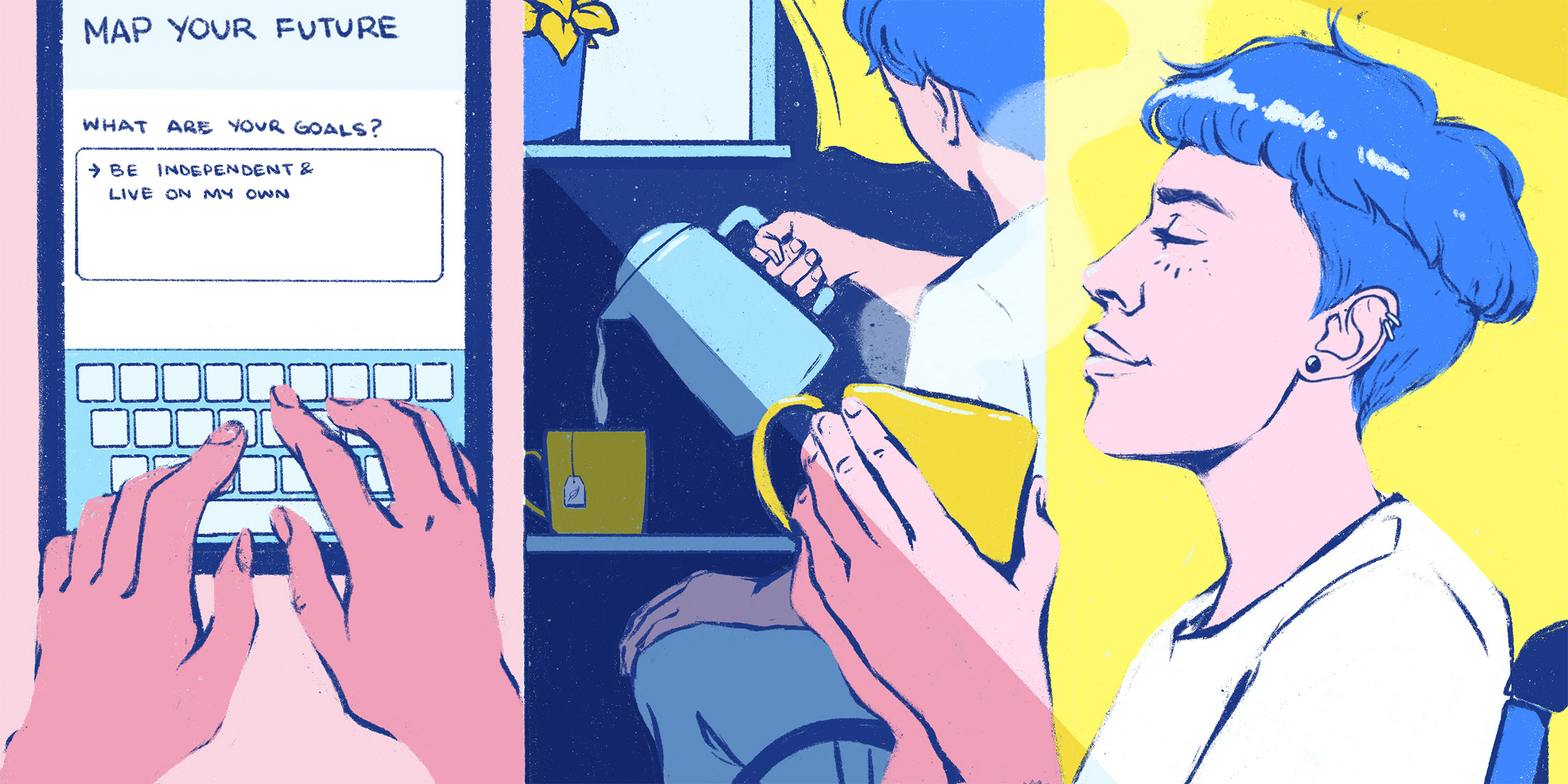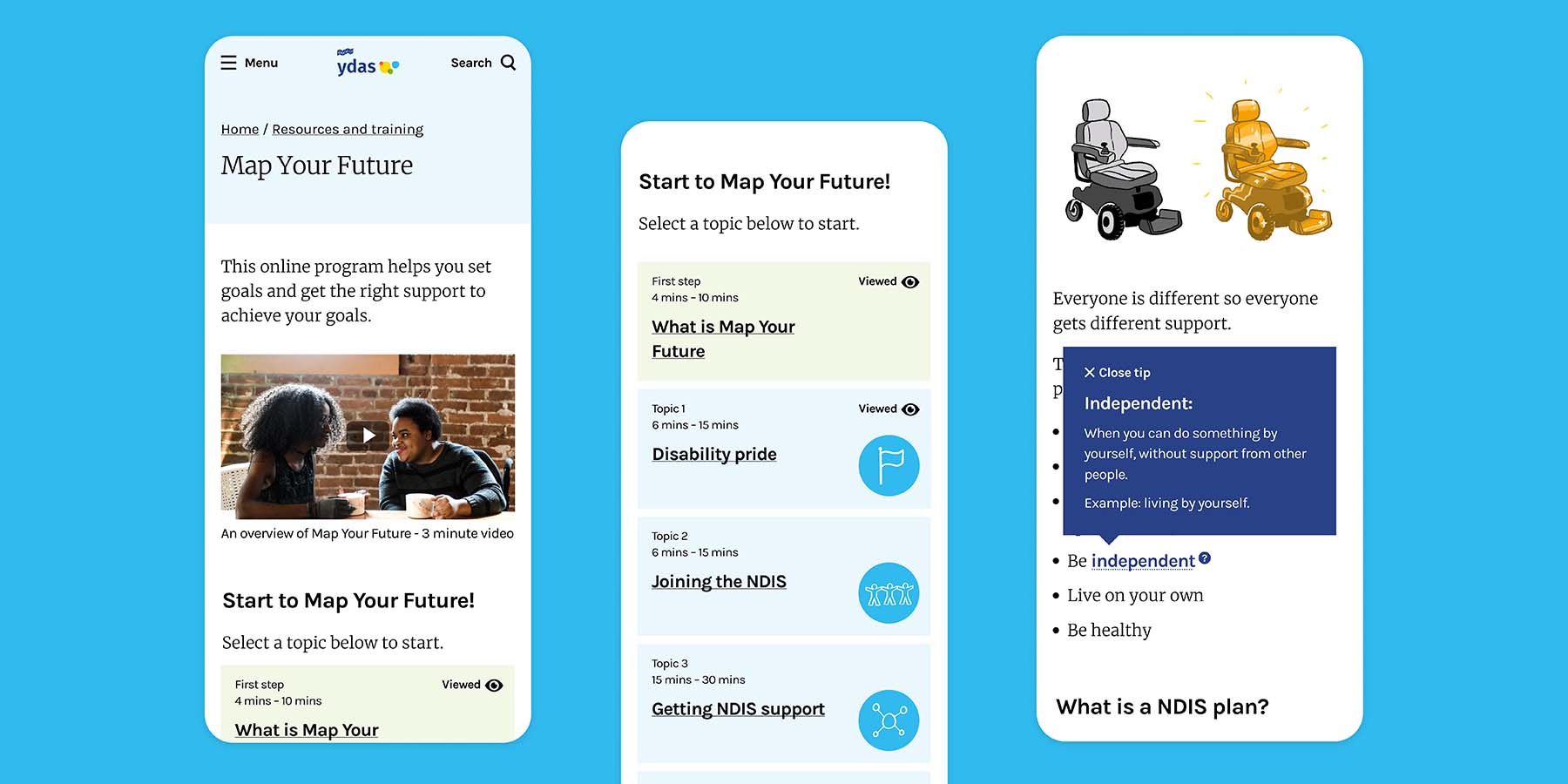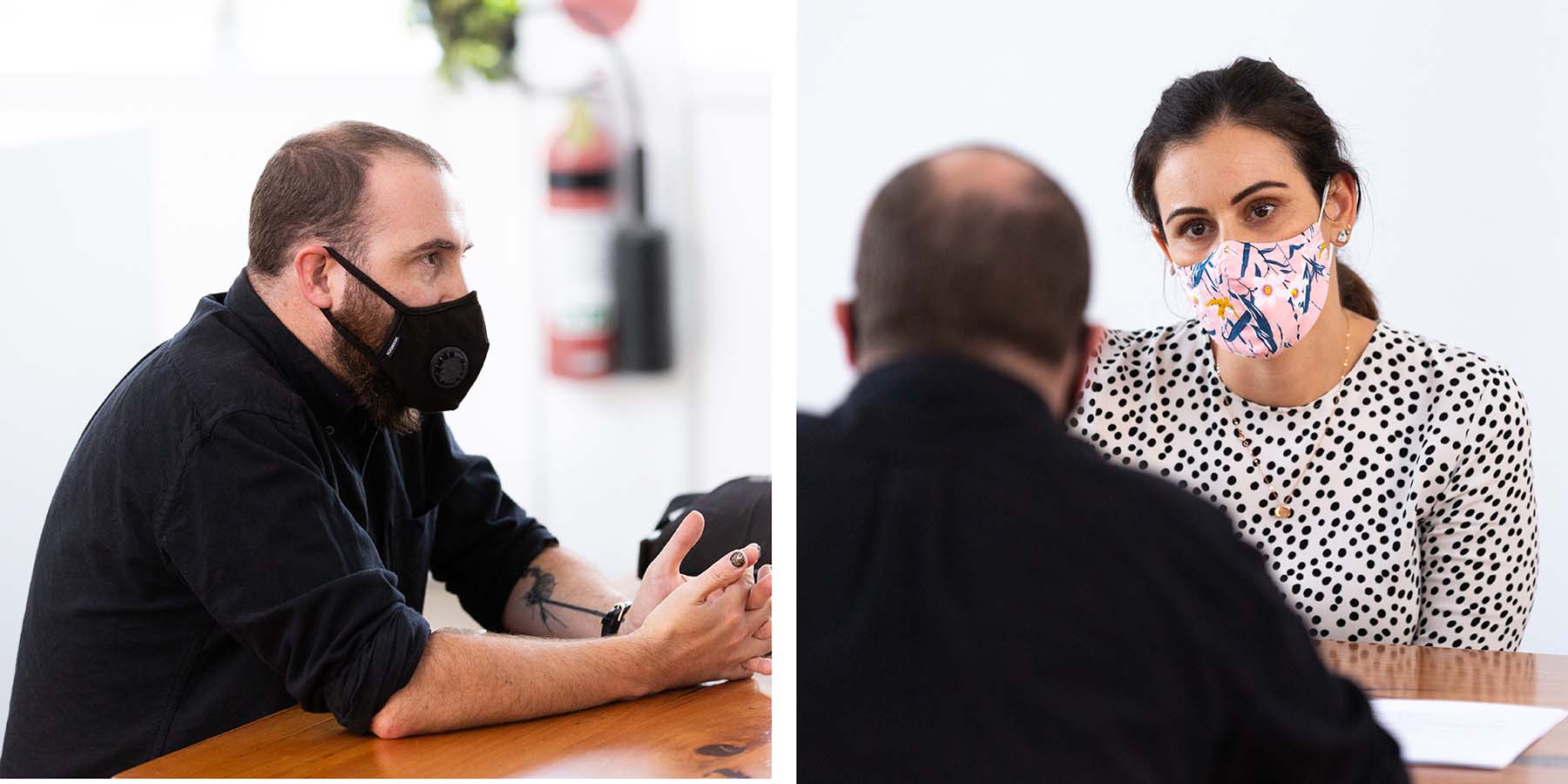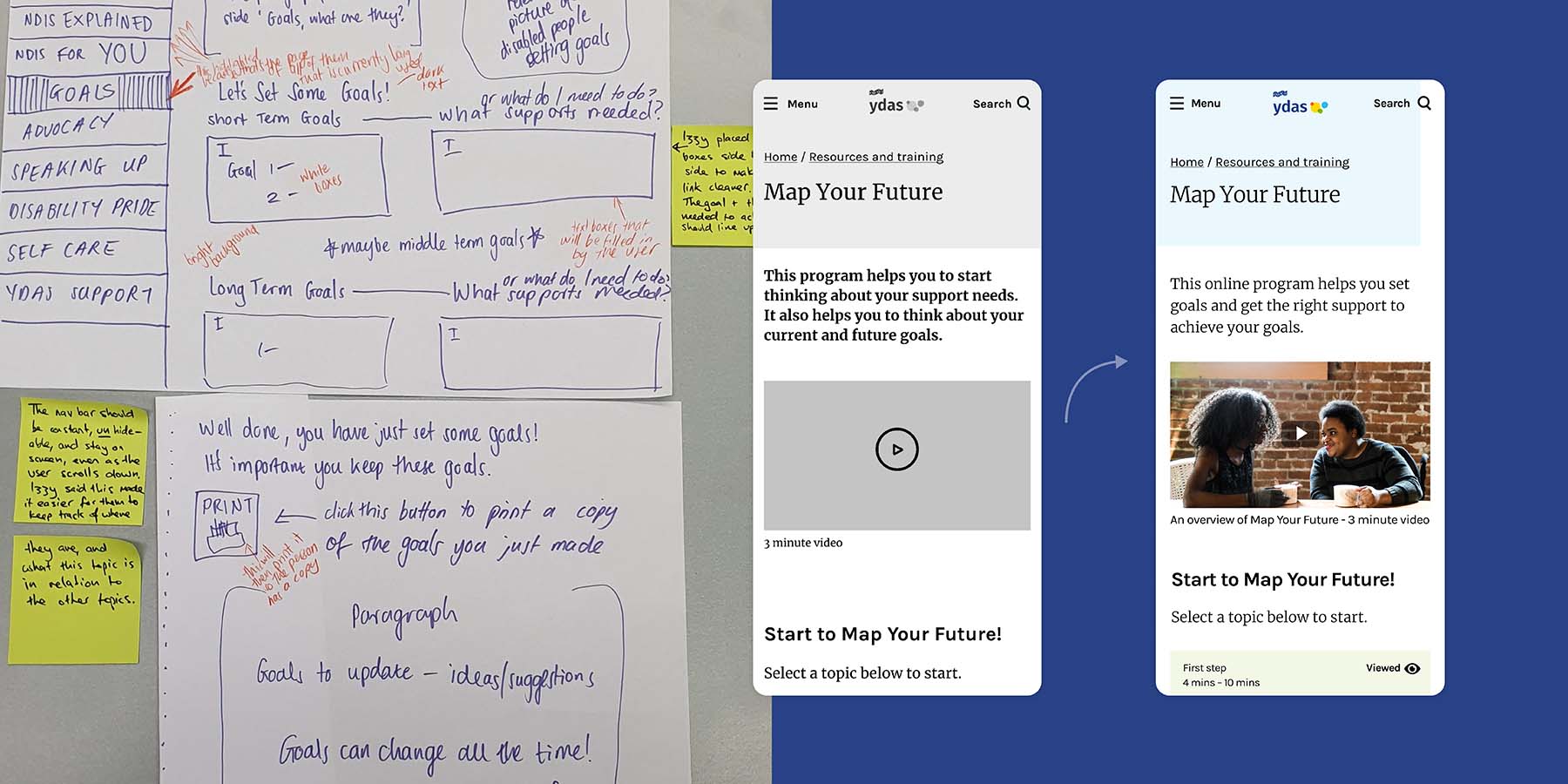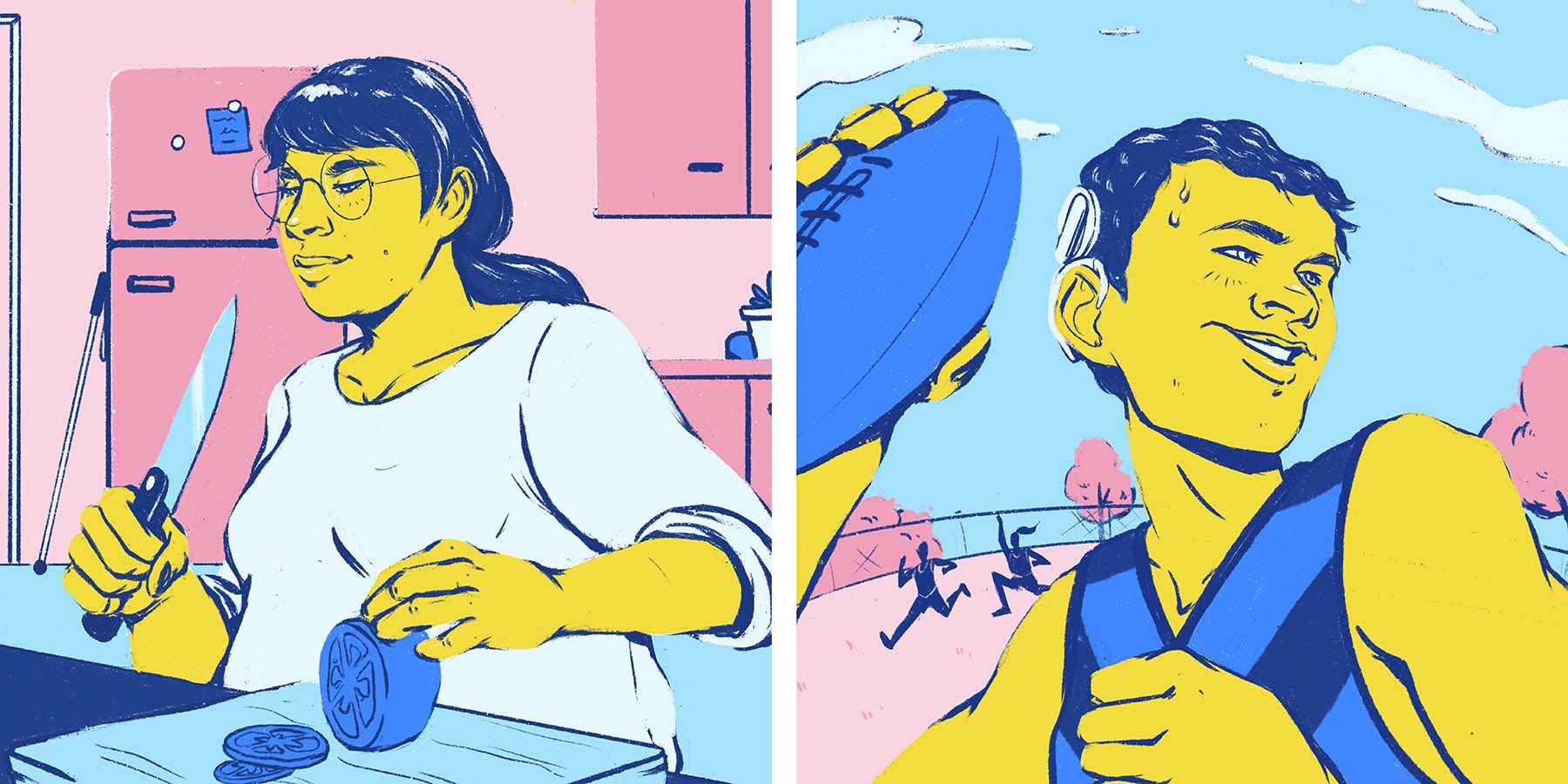The entire project was driven by co-designing with young disabled people: from preliminary paper sketches detailing what the tool could look like, through to testing ideas, digital prototypes and iterative site design and build. YDAS ran preliminary workshops with the young audience and had them sketch out on paper what they imagined this online tool would look like and what they thought was important to be included.
We took these learnings and translated them into a digital version that would work across any device. We then ran workshops to test the ideas with people to make sure their needs were met.
“It was really important that the first step happened as early as possible, so we didn’t have any heavy preconceived notions of the site. Young people influenced the site first, then we designed based on what they said, in combination with our expertise as youth and disability workers and Today’s expertise in building functional and accessible sites.”
—Simon Green, YDAS
"It was a beautifully collaborative environment."
—Beata Klepek, Today
We were conscious of the broad range of disabilities young people are living with and the intentional simplicity of the final design reflects this. The result means young people can map their future in their own time, own space, at their own pace.

